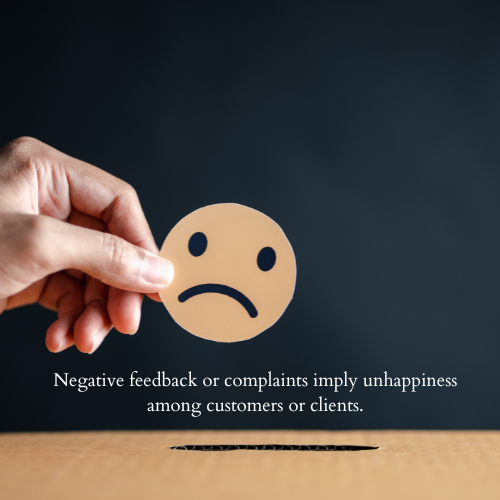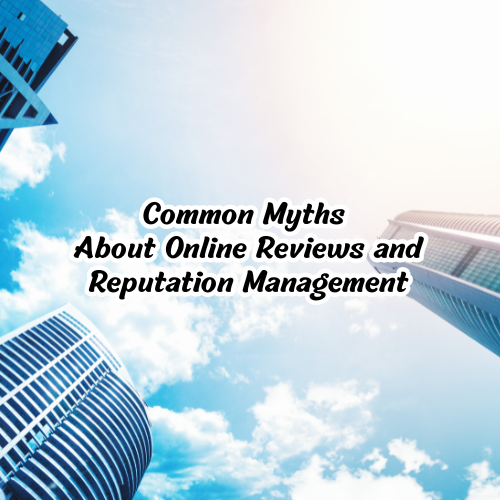Maintaining a strong online presence is key for any business to flourish. Online reputation management is crucial because it aids in making sure that consumers see your business more favorably. As a result, they are more likely to prefer you and engage better with your transactions. Effective reputation management is at the heart of any strong online profile, which is the lifeblood of business success. This post aims to underscore the importance of sound reputation management in ensuring your business's survival.
The Art of Reputation Management
Reputation management is the practice of controlling and influencing how your business is seen and recognized online. This effort extends across online and offline platforms and is not merely tied to managing reviews. It involves creating a positive public perception through various strategies aligned with your business values and goals.
Reputation management integrates customer feedback with your evolving business strategies to create a favorable brand image.
Signs of A Bad Reputation Online
Managing online reputation necessitates proactive measures such as positive audience engagement, fast resolution of concerns, and creating accurate positive content. Site-specific elements, such as platform algorithms and community rules, exacerbate reputation management. Understanding and negotiating these interactions is critical for individuals and businesses seeking to protect and improve their online reputation.
Let's break down the aspects that lead to a bad online reputation, along with some particular considerations:
Negative Press
This might include articles, blog posts, or social media mentions that portray you or your company unfavorably. It might result from a public relations issue, contentious conduct, or negative coverage by media sources. Negative press management entails strategic communication, crisis management, and, in certain cases, legal action in response to false claims.
Unethical Behavior
If your firm is linked to issues, unethical behavior, or criminal acts, it can seriously harm your internet reputation. This might range from fraud and corruption to data breaches and environmental concerns. Addressing these challenges necessitates openness, accountability, and remedial action to restore confidence.
Negative Reviews or Complaints
Online reviews and complaints on sites like Yelp, Google Reviews, and social media may greatly influence your reputation. Negative feedback or complaints imply unhappiness among customers or clients. Addressing these concerns entails soliciting input, addressing complaints, and improving product or service quality.

Online Trolling or Negativity
Trolling, cyberbullying, and online harassment may hurt both individuals and organizations. Persistent trolling or hostility toward you or your brand can foster a hostile online atmosphere and harm your reputation. Online harassment must be managed by a combination of moderation, community norms, and victim support options.
Site-specific Factors
Different online platforms have algorithms, regulations, and community standards that might affect your reputation. For example, engagement numbers, user interactions, and content management methods are essential on social media platforms like Twitter and Facebook. User-generated material and ratings influence your reputation on reviews like Yelp and TripAdvisor. Understanding the characteristics of each platform and tailoring your strategy accordingly is vital.
How Bad Reputation Affects Business
Nowadays, an individual's or business's online reputation is compelling, controlling potential consumers' or clients' views and decisions. Securing a desirable position on search engine results pages, particularly in the top rankings, is critical since visitors prefer to interact more with businesses that occupy these coveted locations. However, the online realm is more than just a knowledge repository; it is an arena where trust is essential. This demands proactive management using practices such as Online Reputation Management (ORM), including content promotion, misinformation correction, and encouraging open conversation with users.
However, a bad online reputation has serious consequences:
Loss of Customers
Most customers reconsider doing business with a company after receiving negative online criticism, emphasizing the importance of maintaining a favorable digital image.
Diminished Morale
A tainted reputation not only turns off potential talent but also demoralizes current staff, potentially leading to lower productivity and higher turnover rates.
Decline in Sales

Negative reviews and lower trust may harm a company's visibility and search engine results, limiting its ability to recruit and keep consumers.
Legal Risks
Misleading or libelous information, trademark infringements, privacy violations, and unfair competitive tactics related to bad reputation management may result in legal action, including defamation and copyright infringement charges.
SEO Penalties
Unethical SEO practices that influence search engine ranks, such as keyword stuffing and spamming backlinks, can result in penalties, reducing online exposure and trust.
Review Management: A Key Subset of Reputation Management
Review management forms a core aspect of reputation management. The power of word-of-mouth marketing has shifted to the digital space, where customer reviews can make or break a business. Hence, soliciting, managing, responding, and leveraging these reviews are crucial to review management.
Key takeaway: Review management helps create more personal interactions with your customers, boosting their trust and loyalty towards your brand.
Significance of a Sound Reputation Management
Sound reputation management is not a mere option; it's a necessity. Below, we dive deep into why your business can only survive with an effective reputation management strategy.
Let Us Help You Improve your Online Reputation
Influence on Buying Decisions
Consumers often turn to reviews to get an insight into the quality and performance of a product or service. Reviews work as social proof, influencing clients' decisions. Better review management means favorable testimonials, translating into favorable buying decisions from potential customers.
Enhanced Search Engine Rankings
Reputation management also has a significant impact on your SEO rankings. Positive reviews improve local search rankings, increasing visibility and attracting more customers.
Building Trust and Credibility
An effective reputation management strategy can help build customer trust and credibility. Responding to reviews helps customers feel valued and heard, nurturing a relationship with them that extends beyond just business transactions.
Damage Control
Sound reputation management helps you mitigate the fallout from negative reviews. Prompt and effective responses to such reviews can turn a critical customer into a happy one.
The Road Ahead: Implementing an Effective Reputation Management Strategy
An effective reputation management strategy doesn't happen overnight. It requires consistent efforts and a proactive approach. Review platforms like Reviewr can help businesses manage their online reputation, from acquiring new reviews to managing all aspects of their review reputation.
Acquiring Reviews
Encourage your customers to leave reviews. After every transaction, kindly request them to leave a review, demonstrating how it can help your business grow.
Responding to Reviews
Whether positive or negative, respond to all reviews. For positive reviews, express gratitude. For negative ones, extend apologies and offer solutions as needed.

Leveraging Reviews
Don't just manage reviews, but leverage them. Share your best reviews on social media and across your digital assets.
Monitoring Reviews
Continually monitor and analyze reviews to identify patterns and areas of improvement.
Key takeaway: A practical review management strategy revolves around acquisition, response, leverage, and constant monitoring.
Conclusion
Investing time and resources in sound reputation and review management can shape the success trajectory of your business. In the long run, it ensures survival by solidifying customer trust, driving sales, and boosting online visibility. Therefore, to ensure your business's survival and thriving growth, consider reputation management an integral part of your business strategy.









